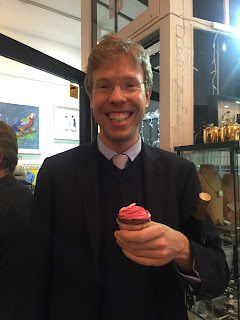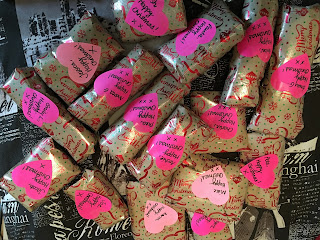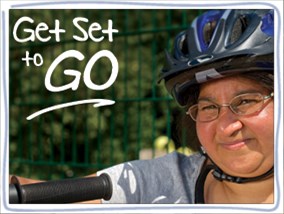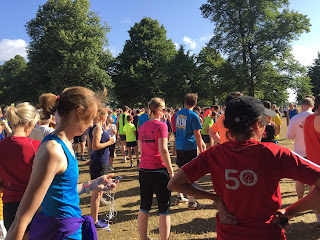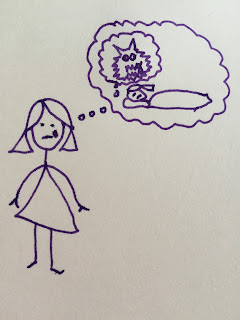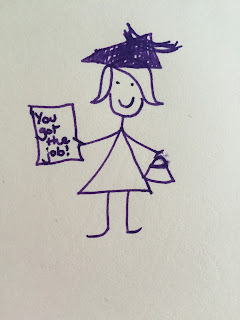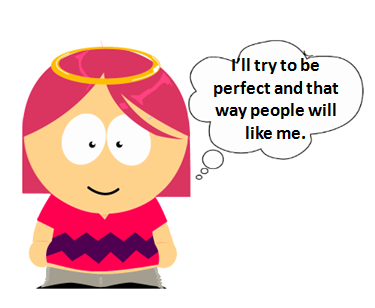Sitting and reflecting on the wonderful communities I belong to
"Greek citizenship stemmed from the fusion of two distinct but related elements, (a) the notion of the individual state as a 'thing' with boundaries, an ongoing existence, and a power of decision, and (b) the notion of its inhabitants participating in its life as joint proprietors."
Totally Locally... Teddington
We all stand together. Indeed. Love this.
Over the past year I've experienced some of the best community spirits I could possibly imagine.
My work colleagues in the KPMG Learning Academy are brilliant people who have supported me with reasonable adjustments for my health, real dedication and team spirit for every project we've worked on together. I've made friends at Bushy Park parkrun where we gather in rain or frost or (crosses fingers) sunshine at 9am on a Saturday to do a collectively mad thing and run around the park for a 5K run. I've been accepted by Mind as a volunteer and together we are working on addressing the stigma around mental health and trying to raise funds to get people the support they so deserve, and the respect that should be a given but is still something many are struggling to find. I've had my wonderful friends, who have sent me messages in tough times and shared their own troubles with me, and we've supported each other, which, as my therapist keeps telling me, is exactly how it should be.
A new community of friends made through
Helen Astrid and her Singing Academy
The community I haven't mentioned about is the place where I live - Teddington. Having broken back my back late last year, and also trying to manage my depression through 'reasonable adjustments' like home working and not travelling, I've stayed at home to work for a lot of my working weeks. As I've said before, this is hugely helpful because I've been able to stave off loneliness which I experience when I'm isolated too much from others, It's a balance for me of wanting to get out into the world and see people and feeling that I'm not up to it on other days. Thankfully at the moment those days are much fewer, but I do pause to check in with my health regularly to see if I'm lower than usual and might need to do something extra to keep my health as good as I can.
London, Christmas Style
Teddington is a small town about 35 minutes from central London by train. Many families live here, many people (from my small network) seem to have grandparents or great aunts here. And there are also people like me, in their thirties (and twenties) who have a flat here because it's (just about) affordable based on quite a good salary and is not too far away from central London. It used to be colloquially and locally known as Deadington, lacking many shops, with a fairly unhealthy crime rate and not much going on.
Thanks Postman Pat for teaching me about communities from an early age.
Plus, you had a cat called Jess. I had to be on your team!
What a difference even in the five years since we've lived here. We have a huge range of unique shops selling everything you could want, and a particularly strong collection of independent shops, which I'm really proud of, especially given our current economic climate and how challenging it is to afford all things small-business.
Hands up!
My mum... I'm so lucky to have a supportive family
Last night I launched my mental health campaign #RedefiningResilience at 1of1 Designs, a beautiful treasure trove of a shop where you can find many, many treats for yourself or your home, run with love by Kate and her husband Charlie, who also generously donated 10% of takings to Mind last night. Other special local businesses (and a few chains too) were kind enough to donate raffle prizes for the night, which raised money for Mind. A local couple who run a wine company - Doran Vineyards - provided wine for the event, my friend Hannah (whom I had not seen for 15+ years since we left school!) went above and beyond the bounds of friendship and made 50 cupcakes with cherry blossom decoration to match the brand.
AND they tasted SO GOOD
On top of all of the above, the friends who either came along or sent messages of good luck from wherever they were, truly touched me. I think it's probably quite hard to be friends with me because although I manage to work full time and hardly ever take a day off, there have to be trade-offs for this, and they come in the form of my being not always that social. That being said, I love my friends, I love seeing them and that we support each other, and last night very special messages came my way, and some people discovered that the journey from Highgate to Teddington really does take about an hour and a half, even on good public transport! Eek!
My friend George...A super friend.
I am a part of a community of individuals challenging stigma around mental health, but in all of the above I find myself in communities. At work, in Teddington, in my interests in books and films and food, and in much more. Within our communities we can make positive changes - whether that's at work or elsewhere. Working together, supporting one another, we can grow. As a change management specialist, who tries to shape change within organisations through learning, communicating and bringing people together, I see everyday why it is important that we have our communities (or our networks if that sounds more work-appropriate).
Speaking at the Redefining Resilience Launch in Teddington
at 1of1Designs Teddington, who generously hosted the event
The communities that I have chosen form my identity, as a friend, wife, colleague, campaigner, patient and more. Without this support, I don't think I could be here today, so thank you to all of you.
I have included some pictures and videos of the communities in my video diary series #12DaysOfXmasMH. This short Christmas campaign describes my experiences of what resilience and what mental health is like for me, and a big part of that is finding support from others that enables me to keep going.
More posts to come, but for now, thank you, readers, because you are a part of this community reading the blog and interacting with mental health and life and all its winding pathways. Take care of yourselves and I send you much love for the weekend. x
Can't wait to give these gifts to my family tomorrow!









